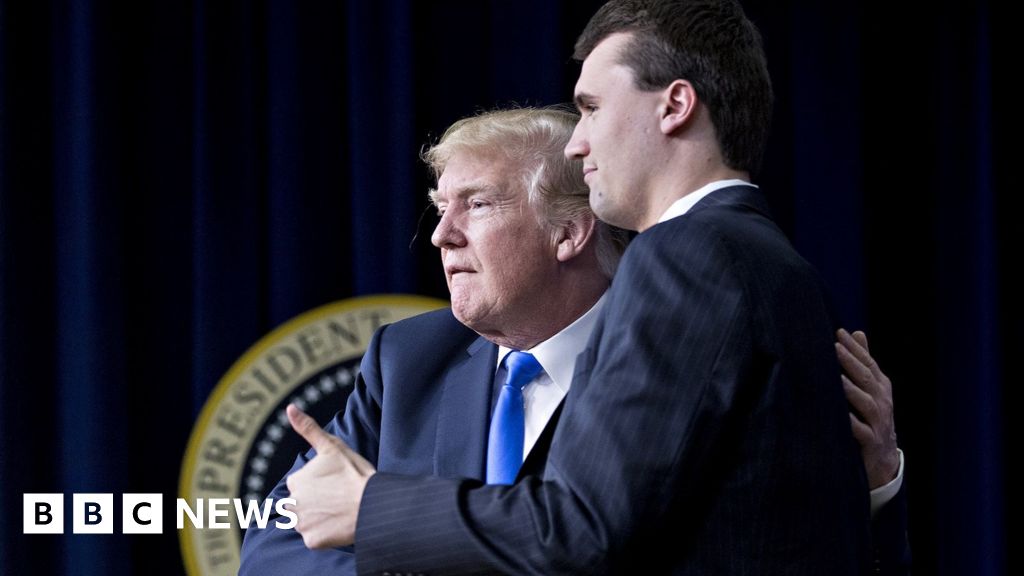We Asked Boomers, Gen Xers, Millennials And Zoomers How To Flirt – Their Answers Were Surprising
By Iris Goldsztajn
Copyright huffingtonpost

Flirting is one of the most human impulses there is. Even the word’s etymology points to how long we as a species have been doing it: it stems from the 17th century French idiom “conter fleurette,” meaning telling gallantries.
Flirting is an evolutionary necessity. It’s the peacocking that leads to relationships, which (crudely put) lead to reproduction.
Obviously, having children is far from the only reason people pursue sexual or romantic relationships, but the point stands: flirting is a quintessentially human – or well, animal – behaviour.
All generations flirt, of course, but their approaches may naturally differ. It makes sense. For Baby Boomers and Gen Xers, flirting as young people, they would possibly have had to call a love interest’s home (and actually talk to their parents) or meet at dances.
Millennials will have started their romantic lives meeting people in bars and frat parties, before pivoting en masse to The Apps. Digital native Zoomers may have only known the DM slide for a large portion of their lives, and are now increasingly craving in-person dating experiences. Not to mention the impact of cultural shifts in gender and relationship politics on people’s flirting habits.
Everyone, whether they were 18 or 79, wanted to be seen, respected and listened to. They didn’t want their boundaries crossed. They wanted to laugh and have fun.
While there may be extensive discourse about the differences between generations in a world that’s fast-evolving, it’s important not to forget our shared humanity. At the end of the day, we’re all just looking for connection.
The flirting advice I received from baby boomers (aged 61 to 79 in 2025): “Be yourself and be respectful.”
For Michael Swerdloff, a 64-year-old counsellor, coach and reiki master who dates women, being your authentic self while flirting is paramount.
“They will eventually get to meet you, why not now?” he asked, adding, “Try your best not to emulate how flirting takes place in movies and TV. It is not natural or authentic and is much harder to do than it looks on the screen.”
Swerdloff also stressed the importance of gauging a person’s interest and comfort level, through body language and verbal responses. He said to tap out if the interest doesn’t seem like it’s there and to continually seek consent as an encounter progresses.
Fellow Boomer Kim Airs, 67, a sex educator, loves a good pickup line, because they correspond with her personality. In the checkout line at a grocery store, “I’ll say something like, ‘I bet you live by yourself, right? Anyone with that many frozen foods usually means that!’ And I chuckle and acknowledge I shop the same,” she shared.
This approach is Airs being herself, but you should only attempt pickup lines if they feel in line with who you are. “That means not putting on a persona or a mask (exaggerating parts of you or hiding parts),” said relationship coach Shelley Whitehead. “People pick up on this unconsciously and translate it into feelings of instinctive uncomfortableness.”
Rudy Mosketti, a restaurateur who put his age at 70+, has observed that the most successful daters are the ones “who genuinely ask their date what they’d like to share and actually listen to the answer,” not the ones desperately trying to impress.
And Vicki Rimasse, 70, noticed a friend of hers found success with men by being “universally flirtatious,” i.e., by talking to everyone she meets “like they are the most interesting person in the world”.
The flirting advice I received from Gen Xers (aged 45 to 60): Be funny, interesting and interested.
Adrienne Alexander, 51, told me: “In my opinion, being yourself (unless you’re a bit creepy) is always my first go-to response for flirting.” She added: “If that’s not an option due to fear, shyness, or any other reason, focus on genuine interest. Ask a thoughtful question and really listen to the answer. If you remember a detail and bring it up later, that’s always going to be appreciated.”
You get bonus points from Alexander if you can land a heartfelt compliment that goes beyond her looks.
Rhian Lindley, 49, goes for wit, confidence, charm and respect. She likes online dating (and flirting), but doesn’t want to spend months messaging. “Let’s not become pen pals and let’s plan a first date pretty quickly,” she said. “If we don’t have a date planned within two weeks, my effort will go elsewhere, as I think it signifies the other person’s commitment to dating and developing a real connection.” As for the flirting itself, Lindley said it’s “about creating excitement and energy while keeping things classy.”
Mirroring the Boomers, Gen Xer Rob Makoviac, 47, defined good flirting as “authentic interest plus respect for boundaries.”
“When I was younger and meeting [my wife], the best ‘moves’ were actually just being genuinely curious about her thoughts and making her laugh without trying too hard,” he said.
Similarly, Preston Guyton, a Gen Xer in his 40s, said flirting is just “respectful curiosity,” and shared a soft spot for “being authentic and a little bit cheeky.”
Becky Moleski, 51, likes exchanging flirtatious glances across the room.
“I’m also a fan of the subtle hand on the shoulder when laughing or discovering commonalities in conversation,” she said, but added that this can veer into creepy territory if the person initiating doesn’t read how the other person responds to this subtle touch.
Swerdloff’s earlier perspective is also pretty much exactly in line with what Gen X relationship coach Shelley Whitehead advised: “The most important starting point is attunement. That means picking up on the other person’s willingness and openness to ‘receiving’ the flirting. There’s nothing creepier than someone flirting with you and not picking up on the signals that you are not enjoying it.”
Teresha Young, a relationship coach who’s an elder millennial or Gen X-cusp, sees good flirting much like the Gen Xers who shared their personal perspectives. “Flirting at its best has a playful energy and rhythm, is light-hearted, and still respectful,” Young said. “To avoid being creepy, the key is to show genuine interest whilst keeping things fun and pressure-free. Humour, wit and charm tend to land well.” For Young, creepiness sets in when boundaries are ignored or “signals that they’re not feeling it” are disregarded.
Something more specific to Gen Xers and Boomers is the way they seek out further contact after the first meeting, according to Kirsty Woodgate, 39, the founder of a wine-centric event series for singles. “Guests aged 45 and over typically offer their phone number or email, and men in this group often add that they’re happy to send the first message,” she said.
Millennials
The flirting advice I received from millennials (aged 29 to 44): “Be friendly and witty.”
This approach is reflected in millennial matchmaker and dating expert Devyn Simone’s observations of her generation’s online dating habits. “Millennials often mix humour with longer chats and show more of their personality in prompts.”
Simone’s non-creepy flirting advice can be summed up as follows: “Safety, positivity and reciprocity are the three things to keep in mind when flirting,” which means “the goal is to show someone you’re interested while giving them space to decide if they’re interested too.”
“For the most part, I see flirting as just being friendly,” said Camilla Peterson, 38. “I’ve had dates after asking people if the seat next to them is taken and offering a small compliment, such as I like their jacket or asking about the book they’re reading. I make an effort to create a low-pressure opportunity for flirting to happen.”
Peterson is also a proponent of more outward flirting signals, such as eye contact paired with a come-hither finger, which is how she approached her current partner. “It gave him permission to approach,” she said. “He was also totally free to ignore me, but I’m very glad he didn’t.”
When flirting in the past, Richard Lewington, 43, focused on being respectful of the other person’s boundaries and showing a real interest in them.
“My current girlfriend tells me that what caught her attention was the fact that I said that I found her ‘intriguing’ rather than the cliché go-to compliment ‘beautiful,’” Lewington added.
Woodgate, the singles events founder who’s a millennial herself, shared how she’d want a friend to be approached. “I’d want them to do it with a warm and genuine smile, and to keep the interaction brief!” she said. “Something simple and considerate like, ‘I hope you don’t mind me saying this, but I noticed you and wanted to give you my details in case you’d like to get in touch. Maybe we could grab a coffee sometime?’ Then they hand over their name and number, and let them get on with their day.”
On that note, in the case of Zoomers and younger millennials, Woodgate has noticed they’re more likely to share their Instagram handle than a phone number, as a low-key way to stay in touch and get a feel for the other person.
The flirting advice I received from Zoomers (aged 13 to 28): “Be complimentary, cheeky and authentic.”
“Gen Z tends to keep things playful, using memes, TikTok references and voice notes that feel authentic rather than polished,” said Simone. But playfulness doesn’t mean respect goes out the window. When flirting without getting into creepy territory, “a few foundational considerations to keep in mind are context, consent and body language,” said Amanda Etienne, PsyD, a therapist who’s a younger millennial or Gen Z-cusp.
Context means “who you are to each other and what the setting is.” Recognising body language means asking yourself, “Do they seem rushed and distracted, or are they paying attention to you and making eye contact?” Consent means taking “no” for an answer. “Do not veer into the ‘playing hard to get’ assumption,” said Etienne.
Val Barone is a 24-year-old who dates women. “I’m very mindful of how unwanted advances can make a woman feel uncomfortable and, at worst, unsafe, but that can make flirting a little difficult, especially considering I’m not exactly an extrovert,” she said. “My approach is usually finding something to compliment a girl on that’s not sexual or potentially inappropriate (her glasses, her purse, etc.).” She has found that the woman on the receiving end will often compliment her back. At this stage, Barone will “try to make it clear that I’m into women, and if they’re not, they will follow suit.”
For Nishaa Sharma, 28, “Good flirting is all about wit and charm. Especially in today’s dating scene with potentially dozens of online conversation starters coming someone’s way, the key in my opinion is to stand out as cute and funny.” Sharma is now married but said that when she was on the apps, “my go-to technique was always to send a cute and cheeky GIF (usually the one of Snow White blowing a kiss and waving, or the one of Jess from ”New Girl” wiggling her glasses up and down).”
As for creepiness, Sharma said it comes from feeling “objectified.” She added, “as someone with an Indian background, anything around being ‘exotic’ or fetishizing my race was also an immediate ick.”
Angela Anderson, 24, also cited a few icks. “I’ve had men compliment my socks,” she said. “That is just weird and not a good way to start a conversation with someone… These socks were literally plain white. Compliment anything else!”
Anderson also said she hates when men move too fast, like bringing up marriage immediately, or when they beg her or ask her to “please” give them her number. “Any sort of begging, desperate behaviour is very, very creepy and kills the vibe,” she added.
In true Zoomer fashion, Fleurine Tideman, 28, said, “I love someone who will chat, show interest, [make] eye contact and ask questions. If you have me laughing quickly, you’re doing well. I hate clichéd lines or conversations, and I’m much more into creating a sense of intimacy between us with real talk.”



